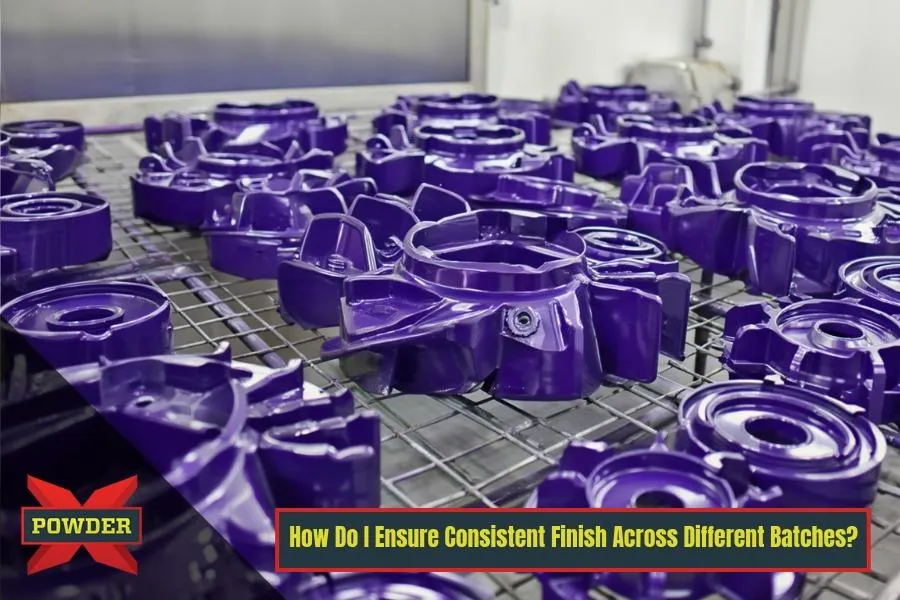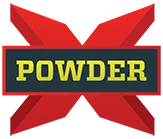
How Do I Ensure Consistent Finish Across Different Batches?
Here’s a truth that separates hobbyists from pros:
Anyone can make one part look good.
But can you make every part look the same, whether it’s made today, next week, or six months from now?
If you want your powder coating shop to run like a well-oiled, high-profit machine, consistency isn’t a nice-to-have, it’s survival.
Customers notice when finishes drift in color, gloss, or texture.
And when they notice, they lose confidence.
So let’s break down how to lock in your process so every batch, no matter when it’s run, comes out looking exactly as it should.
The Three Pillars of Finish Consistency
Achieving batch-to-batch uniformity boils down to three core areas:
Prep. Process. Powder.
Get these right and your rework pile disappears.
Prep: Start Clean, Stay Consistent
Your finish is only as good as your prep and prep is where most consistency problems begin.
Standardize Pretreatment Chemistry: Use the same cleaning agents, concentrations, and application times for every batch.
Example: If you run a five-stage wash, verify tank concentrations daily.Track Blast Profiles: If blasting, maintain consistent media type, pressure, and distance.
Variations here can cause visible texture changes.Control Part Drying: Moisture left on the part before coating can cause defects that appear randomly between batches.
Joey’s Tip: Create a written pretreatment SOP and train everyone to follow it, not just “how they’ve always done it.”
Process: Lock in Your Application Variables
Even the best powder can’t save you if your spray technique or cure process drifts.
Grounding: Verify ground clamp placement and cleanliness for every batch. Poor grounding causes uneven film build.
Gun Settings: Record your kV, microamp, and airflow settings for each product type. A 10kV change can alter appearance.
Gun Distance & Motion: Keep a consistent gun-to-part distance (typically 6–10 inches) and maintain smooth, even passes.
Environmental Control: Humidity and temperature shifts in your booth can affect coverage and powder flow. Monitor and adjust accordingly.
Powder: Manage Your Material Like a Pro
Powder coating material isn’t magic dust, it’s chemistry that can change if you don’t handle it right.
Lot Control: Track powder lot numbers. If you mix lots mid-run without blending, you’ll see color shifts.
Storage Conditions: Keep powder in a cool, dry place. Heat and moisture degrade flow and coverage.
Sieve & Reclaim Consistently: Reclaimed powder can be used, but always mix it in controlled ratios with virgin powder to avoid texture change.
Pro Insight: Even if the powder name is the same, the batch chemistry can have slight variations. Always blend new lots into old to minimize visual differences.
Verification: Measure, Don't Guess
Professional finish consistency means you verify with tools, not just your eyes.
Gloss Meters – Confirm gloss level matches customer spec.
Colorimeters – Ensure Delta E color difference stays within acceptable range.
Film Thickness Gauges – Keep mil build within tolerance across every part.
Create a Batch Consistency Checklist
Every batch should have a documented checklist covering:
Pretreatment verification
Powder lot number
Application settings
Cure schedule verification
Inspection results
This turns consistency from luck into process.
Joey's Final Word: Consistency Is a Business Model
“Your process isn’t proven when you can make one good part. It’s proven when you can make 1,000 good parts over and over again.”
Consistency isn’t an accident, it’s the result of a repeatable system.
Dial in your prep, process, and powder, and your customers will trust you not just for one job but for every job.
